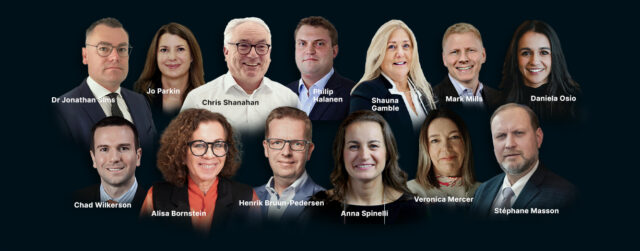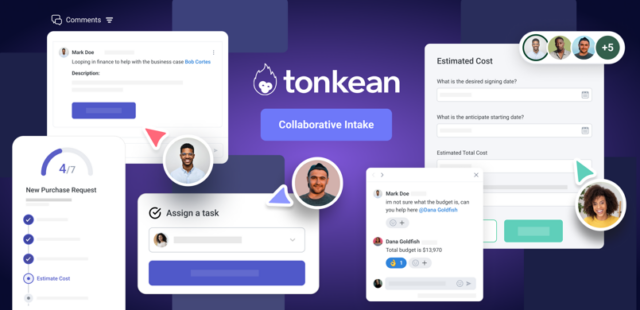“EQ is often undervalued in procurement….and in a post a COVID world, perhaps the most critical skill we can bring forward” – Nancy N., VP Indirect Sourcing
When we attend various conferences, we often hear how innovation and digitalisation play a pivotal part in procurement’s evolution. While no one will dispute their importance, our profession at its heart is about relationships, and more specifically having the Emotional Intelligence or EQ to manage them effectively. After all, as Nancy N said herself, EQ is perhaps “the most critical skill” in our profession.
Now, there is no doubt that you are familiar with the concept of EQ. It is one of those terms in which its ubiquitous use has, to a certain extent, made it somewhat meaningless. When we say meaningless, this is not to suggest that EQ is unimportant, but it’s undeniable that it is used so often that we do not give it the attention it is due. In other words, if you ask someone if EQ is essential, the conversation usually ends with ‘yes’ rather than stimulating further discussion.
However, and despite its universal recognition as an attribute we all need ourselves and want in others, organisations usually encounter two obstacles in their efforts to quantify EQ when they look to hire their next great procurement leader. It’s important to note as well that, in referencing the word “leader,” we are not only talking about a title or senior position. In today’s world, all procurement people must assume a leadership role.
Now that we have explored the notion of EQ and how all procurement people are leaders in their own right, we pose two key questions for the future:
- How and why EQ will be different in a post-pandemic world
- Why smart executives are now looking beyond the resume to find EQ
You are not alone
“Attitude is a little thing that makes a big difference” – Agata, SAP Deployment Lead , Business Transformation
There is an old saying that goes; it is not what happens to you that matters, but how you respond to it that counts the most. The global COVID-19 pandemic is undoubtedly something that has happened to all of us on a massive scale.
Beyond efforts to flatten the curve, social distancing has forever changed not only the perception of procurement’s importance, it is progressively redefining our roles and ways of working.
While remote working is nothing new, for most of us it was more of a concept along the lines of the four-day workweek and flex-hours, i.e., promising in nature but not necessarily practical on a large scale. That has now changed. We are all, for now, and the foreseeable future “together on our own.”
As a result, the attributes of EQ will be “tested” like never before.
When we say attributes, we are talking about the ability to:
- communicate better
- reduce and better manage stress
- defuse conflicts
- build new relationships while maintaining or improving existing ones
- empathise in isolation
As you acknowledge the above checklist, you are probably giving an affirmative nod thinking; I already know this is all-important. Here is the thing, regardless of how proficient you or your team were previously, you now have to be able to demonstrate EQ in relative isolation.
Take communication for example. When you are in front of another person, you can in all probability pick-up on their vibe or body language when speaking with them. You know, the old if their arms are “crossed” they are “closed” to what you are saying adage.
Being able to make such determination – even during a Zoom call – is considerably different and challenging. Statements can be more easily misunderstood or misinterpreted in the virtual realms than they are in the physical world.
Stress and stress management is another area of difference. For example, did you know, according to a recent report from States of Play, a joint CNBC/Change Research survey, that people “working remotely” are 60 per cent more productive than they are in an office environment? Now, that may sound like a good thing, and to a degree it is. However, the same reports also indicate that many are feeling a higher level of stress because outside of the office it is far easier to lose track of time, meaning that people are putting in long hours without any breaks. As a result, most are operating at a level where there is a higher likelihood of emotional and physical burnout. In an ironic twist, the concerns with remote working previously were that people would do less rather than more. With poor time management EQ, the pendulum has swung way over to the other side of working too much.
When it comes to resolving conflict, building or maintaining relationships, or having an ability to empathise, remote working also demands better proficiency in these areas. Therefore, being able to assess either a current employee’s or potential candidate’s attitudes and EQ ability in a remote working world is critical.
Unfortunately, the existing tools and methods we use to assess someone’s EQ in a post-pandemic world is often limited, perhaps even outdated.
Beyond the resume
“Resumes play a small role, getting to know your candidates as a person matter more, and EQ/Cultural Fit matters the most” – Executive Search Company
In an earlier article we talked about how platforms such as LinkedIn are convenient regarding the solicitation of CVs or resumes. Use these platforms and there is no doubt that you will get a healthy response when you post for a position you are looking to fill. That said, many professionals on both sides of the hiring table, are beginning to wonder if “candidate quantity” is taking precedence over “candidate quality?”
Specifically, is being inundated with large numbers of CV’s making it more difficult to not only attract the best and brightest candidates but quantifying their “remote EQ?”
For many in our profession, the answer is yes.
In our next article, we will provide you with an overview of a proven framework for remote EQ hiring success in this brave, new world.
In the meantime, we would invite you to take our two-minute survey regarding your remote-working experience. After we have closed the polling at the end of June, we will be publishing a paper on the results and what they mean.











